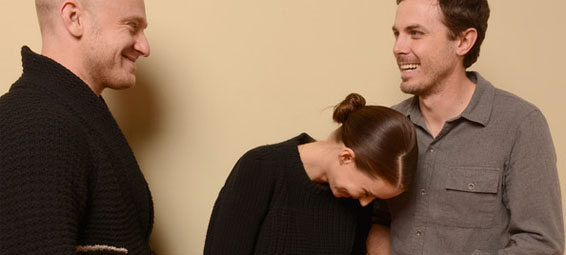Seven filmmakers from Dallas are headed to this year’s Sundance Film Festival, which kicked-off January 17, in support a number of locally- produced movies that are featured in this year’s festival. We caught up with them, and over the next week, we’ll share their thoughts on their movies, filmmaking, and Dallas. Click here for all the profiles in the series.
In addition to writing and directing a number of short films, producer James M. Johnston is best known as a key ingredient in the filmmaking team that includes David Lowery and Toby Halbrooks. In 2012, he earned a Sundance Creative Producing Fellowship, and his work on David Lowery’s Ain’t Them Bodies Saints has already helped earn the film the 2013 Indian Paintbrush Producer’s Award at Sundance. When not working on his own or Lowery’s films, Johnston runs the Spiral Diner with his wife.
 Name: James M. Johnston
Name: James M. Johnston
Age: 38
Film(s): Ain’t Them Bodies Saints (producer), Pit Stop (producer)
How did you become involved with making Ain’t Them Bodies Saints?
David and I have been making films together for about 13 years now. I worked on his very first film and neither of us knew what we were doing. We just felt our way in the dark on that one. Needless to say, the public will never see that movie. But we hit it off and became close friends and just never stopped working together. Along the way David and Toby Halbrooks met and were working on TV scripts together and they became fast friends too. So in 2010 we decided to join forces the three of us together and created a production company called Sailor Bear. Toby and I applied to the Sundance Creative Producing Fellowship with Ain’t Them Bodies Saints and thankfully were accepted, and that’s what started us down the road to the movie we have before us today.
I produced this film because David is one of my best friends and he wrote one of the finest scripts I’ve ever read. Plus, I have full faith in his vision as a director, and I knew no matter what happened along the way we’d have a great film on our hands when all was said and done.
There are a lot of Dallas filmmakers at Sundance this year. What does this say (if anything) about the state of filmmaking in Dallas?
I just think more like-minded folks are finding each other, taking filmmaking seriously and pursuing it as an artistic endeavor.
Are there any advantages to being a Dallas-based filmmaker?
Well, I’m a native son of Fort Worth, where I still live. I like having a home base where I can be in a population of folks that are away from the main industries of film. I need to be around people from all walks of life to stay energized and remember the audience I’m trying to make films for.
Dallas/Fort Worth has a really robust commercial industry so the infrastructure and resources are there for anybody who wants to get serious about filmmaking. Filmmakers are finally starting to figure out how to use that to their advantage. Also, having DFW airport close by where either coast is a short flight away is a big plus.
What are the biggest challenges facing filmmakers working in DFW?
I don’t think the challenges are special to being in DFW. It’s an uphill battle whether you’re making a zombie film or relationship drama. No matter the city, it’s hard as hell.
Where do you see Dallas filmmaking in ten years? Do you think there is a progressive nature to the growth of a film scene? In other words, is Dallas becoming a stronger city for filmmaking, or is this just a singular moment when a number of people from here happen to making good films?
That’s hard to say. In a way it seems to be a singular moment because I don’t think the locale is the main ingredient here. In general, regional filmmaking will continue to be stronger and more prevalent as the divide between Hollywood and Indie continues to widen and filmmakers realize they don’t need the machine to make their movies and can find a strong support base in their home town.
Is there a filmmaking community in Dallas, and do you consider yourself a part of it?
There sort of is. There are people making films and everyone is aware of each other. But most of the people I know and worked with in DFW have moved on to Austin where there is a clearly defined community. A large part of this is the Austin Film Society which serves as an anchor. We don’t really have anything like that in DFW.
I consider myself a part of the American filmmaking community. I have friends all over these United States and we all help each other out in lots of ways. Technology has really allowed for a community at large.
Be honest, do you see yourself continuing to stay in DFW working on films, or do the coasts still have too strong a pull?
I definitely see myself staying put in Fort Worth for awhile but who knows what the future holds. Right now it’s been pretty easy to come back home and travel out when I need to. If I did move to one of the coast it’ll have to be west to L.A. I don’t think I could handle the winters in NY. I also love having a front porch and a yard.
Photo at top: The three big names in David Lowery, James M. Johnstone, and Toby Halbrooks first bigger budget film: Ben Foster, Rooney Mara, and Casey Affleck, at a film shoot at Sundance.





